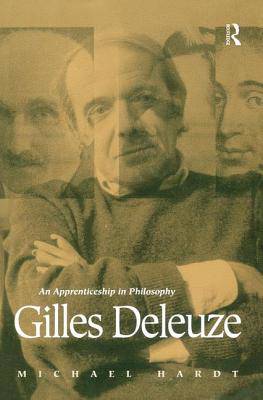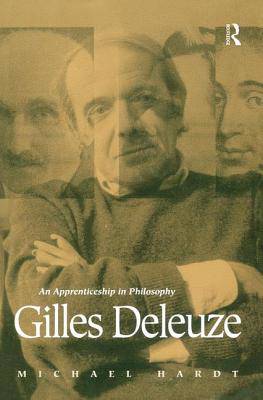
- Afhalen na 1 uur in een winkel met voorraad
- Gratis thuislevering in België vanaf € 30
- Ruim aanbod met 7 miljoen producten
- Afhalen na 1 uur in een winkel met voorraad
- Gratis thuislevering in België vanaf € 30
- Ruim aanbod met 7 miljoen producten
Zoeken
Omschrijving
First published in 2005. Gilles Deleuze, a major figure in the intellectual history of the late 20th century, inaugurated the radical non-Hegelianism that has marked French intellectual life during the past three decades. Many poststructuralist and postmodernist practices can be traced to Deleuze's 1962 resurrection of Nietzsche against Hegel. Hardt shows how Deleuze's early analysis of Bergson's critique of ontology and determination led him to a conception of a positive movement of differentiation and becoming, which in turn led him to the field of forces, sense, value, and the thematic of power and affirmation in Nietzsche. The theory of power in Nietzsche provided the link for Deleuze to an ethics of active expression in Spinoza. Deleuze's discovery and analysis of Spinoza's cultivation of joy and practice at the center of ontology finally resulted in a complete break from the Hegelian paradigm that had reigned over continental philosophy and history. Michael Hardt is the translator of Antonio Negri's "The Savage Anomaly: The Power of Spinoza's Metaphysics and Politics" (Minnesota, 1990), Giorgio Agamben's "The Coming Community" (Minnesota, 1993), and co-author (with Antonio Negri) of "Labor of Dionysus" (Minnesota).
Specificaties
Betrokkenen
- Auteur(s):
- Uitgeverij:
Inhoud
- Aantal bladzijden:
- 142
- Taal:
- Engels
Eigenschappen
- Productcode (EAN):
- 9781857281439
- Verschijningsdatum:
- 29/04/1993
- Uitvoering:
- Paperback
- Formaat:
- Trade paperback (VS)
- Afmetingen:
- 152 mm x 229 mm
- Gewicht:
- 259 g

Alleen bij Standaard Boekhandel
+ 85 punten op je klantenkaart van Standaard Boekhandel
Beoordelingen
We publiceren alleen reviews die voldoen aan de voorwaarden voor reviews. Bekijk onze voorwaarden voor reviews.











